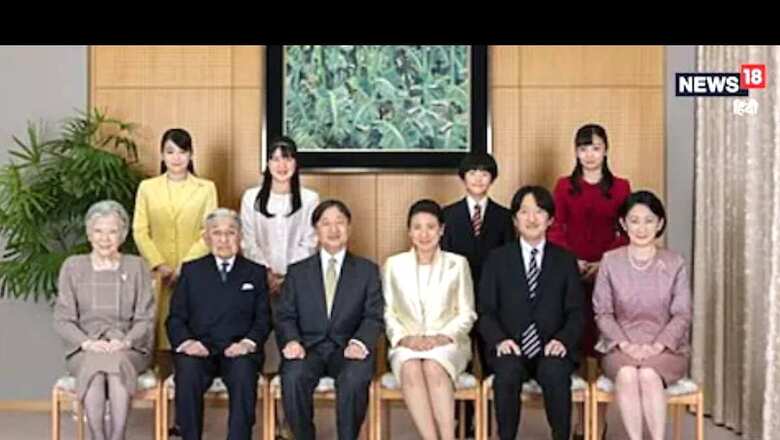
views
For the first time in the last four decades, a child from the royal family of Japan has stepped into adulthood. Prince Hisahito turned 18 on September 6. He is the nephew of King Naruhito of Japan. His father Crown Prince Akishino was the last royal who turned adult in 1985.
Prince Hisahito is the youngest of the 17 members of the royal family and one of its four male members. It also seems that he is the last heir of the royal family. In this context, let us understand why women of Japan’s royal family do not have the right to sit on the throne.
The royal family of Japan is one of the oldest monarchies in the world. There has been a tradition that only the male members of the royal family will become kings and take over the throne. The root of this tradition lies in the Japanese society, which is generally male chauvinistic. A law was also introduced in 1947 to ensure the sole dominance of men on the throne. This law was the Imperial House Law.
According to this law, Prince Hisahito is now in line to become the king, though he is not the direct heir of the present king. King Naruhito has a daughter, but according to the Imperial Law, she will not be able to be the Queen.
The proposal that women of the royal family should also have the right to be queens was brought up several times in the past but it never materialized. Last time, a similar proposal was brought up after the birth of Princess Aiko, but in 2006, when her son Hisahito was born, this proposal was sidelined.
The Imperial Law which came into effect in 1947 mentions rules and regulations related to the royal family. It is clearly stated that only a male member can become the king.
According to the Imperial Law, if a Princess of the royal family marries a common man, she has to lose her royal title. She is given a fixed amount and does not get any inheritance from the family property. However, the rules are different for a royal Prince. He can marry a common woman. The child born from that marriage also gets the right of inheritance.
Why Is This Law Being Opposed?
Japan’s population has rapidly declined in recent years, with a majority being elderly. Over 65% of the population is aged 80 or above. Birth rates are not keeping pace with the increasing average age. There is low birth rate for males, with only 95 males born for every 100 females.
The Japanese royal family is also grappling with this demographic crisis. Hence, there have been ongoing calls to allow women of the royal family to become queens and revising the age-old Imperial Law. This debate has gained momentum since 2017.
No males were born into the Japanese royal family from 1965 to 2006. The last male child born was Prince Hisahito in 2006. It has been 18 years since then and no male child has been born yet.


















Comments
0 comment